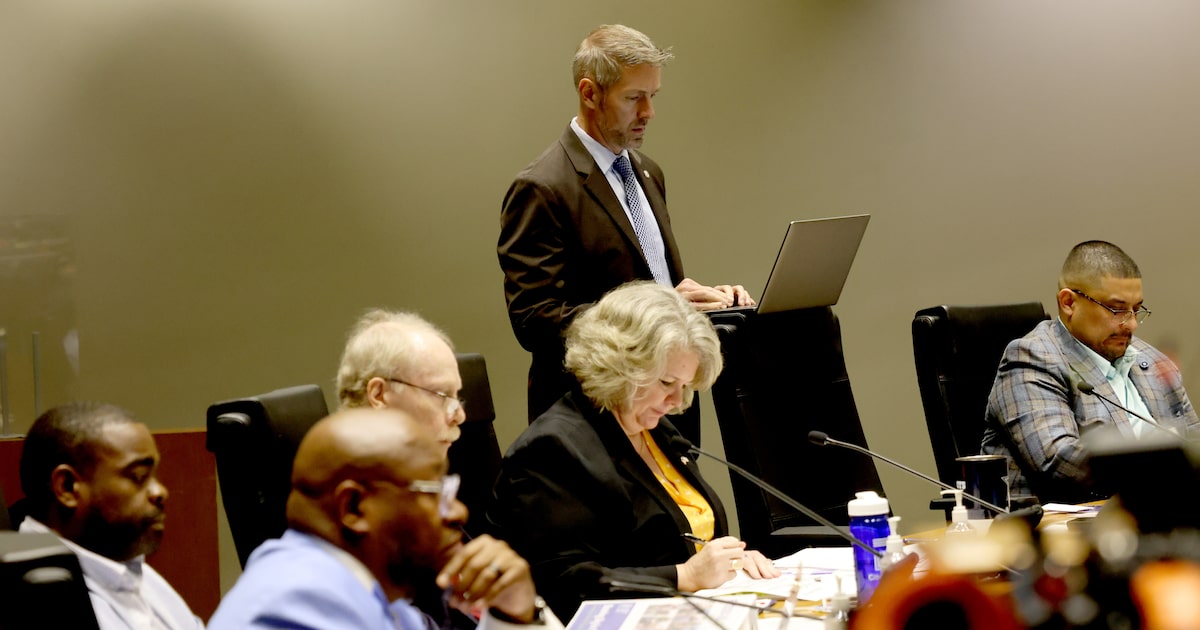Dallas has cut funding for state lobbying for at least the next 12 months as part of its new $5.2 billion budget.
The Dallas City Council approved shifting $339,000 originally planned for three lobbyists’ contracts to reduce the property tax rate by 0.015 cents per $100 valuation.
Mayor Eric Johnson, who proposed the budget amendment, argued that the city could rely on council members, the city manager, other top officials, and the city’s government affairs office to represent Dallas in Austin instead of paying external lobbyists.
Johnson had previously criticized the lobbying team during an Aug. 27 City Council meeting, calling them “not very good” and questioning their influence and relationships at the State Capitol. On Wednesday, he reiterated his lack of confidence in farming out the city’s lobbying efforts.
Political Points
“I believe that we can do this without actually negatively impacting our effectiveness in lobbying in Austin,” Johnson said.
City officials clarified Wednesday that the budget amendment specifically targets three of the four lobbyist contracts, which total $339,000 annually from the general fund. A fourth contract, funded by $60,000 from Dallas Water Utilities, can’t be redirected to reduce the property tax rate.
During nonbinding straw votes Wednesday, at least 11 City Council members — Mayor Johnson, Chad West, Jesse Moreno, Maxie Johnson, Jaime Resendez, Laura Cadena, Lorie Blair, Kathy Stewart, Bill Roth, Cara Mendelsohn, and Gay Donnell Willis — expressed support for the amendment. The amendment became official upon approval of the budget, which didn’t happen until after 1 a.m. Thursday.
Last month, the mayor and the 14 other council members unanimously approved renewing two-year deals through the summer of 2027 for all four contracts during the same meeting, each of which includes a single two-year renewal option.
Clifford Sparks, Dallas’ legislative director, defended the lobbying team, calling them “extremely effective” compared to other lobby teams.
“Over the past 20-plus years, you’re looking at over $213 million that they brought back to the city in that time and countless pieces of legislation that they were responsible for,” he said, while also acknowledging that council members were also part of those efforts.
City Manager Kimberly Bizor Tolbert and City Attorney Tammy Palomino confirmed that the cut means the city will not fund the lobbyists for the upcoming fiscal year, which runs from Oct. 1, 2025, through Sept. 30, 2026. They noted that the city could reconsider restoring funding or exploring alternative approaches for the following fiscal year, which would run during the 2027 state legislative session.
Council member Adam Bazaldua argued against the budget amendment, saying he felt cutting the lobbyists’ contracts without a concrete plan already in place was premature.
“I definitely do not think that there’s one person around this horseshoe that has as many built-in network relationships as our current lobby team,” Bazaldua said. “I think that if our intent was to go this direction, it should be done so more thoughtfully.”
Willis said she supported the amendment despite also having concerns because she wants the city to develop a new, more inclusive lobbying strategy. She praised more recent efforts to involve more council members in legislative work, noting that each member brings their own unique strengths and relationships to the table.
“We don’t want to lose ground,” said Willis, the council’s deputy mayor pro tem. “So I say, put the throttle down and let’s figure out what a good new strategy would be.”
